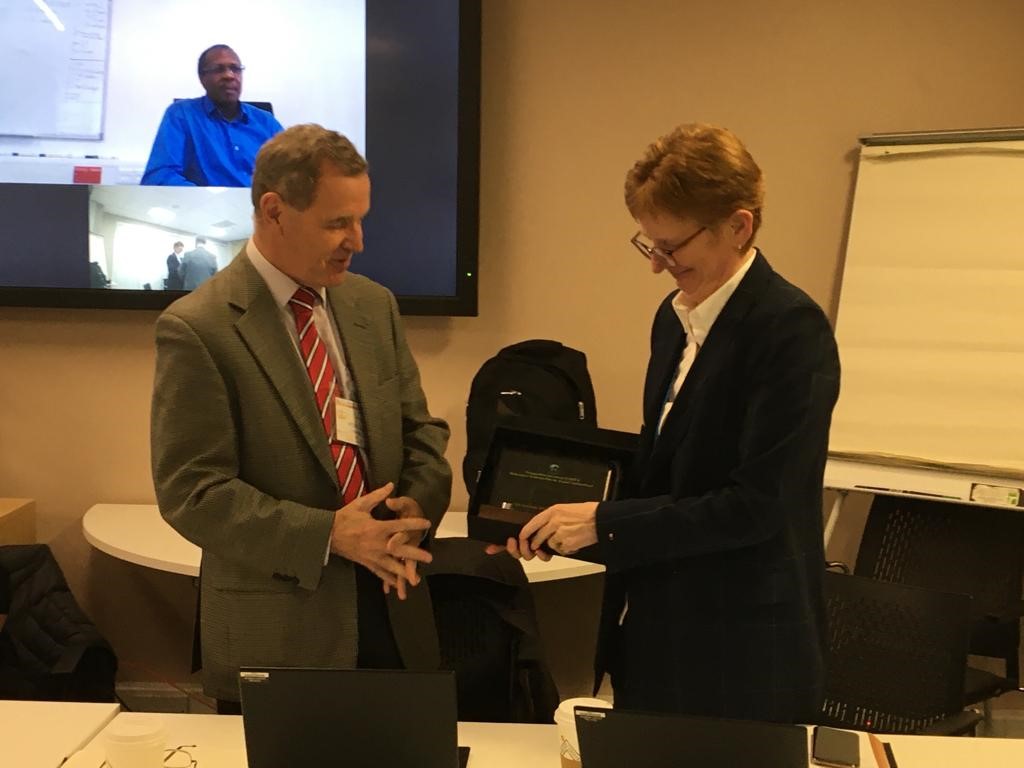
KEY ACHIEVEMENTS | BACKGROUND | PRACTICE DEVELOPMENT | RESULTS | KEY LEARNING
Key achievements
|
Background
The health system in Pakistan is highly decentralised, with four provinces in Pakistan being empowered to make improvements that work within their specific local context. This creates unique opportunities to drive forward sub-national health efforts to align with the national health guidelines. Following the Dengue outbreak in Pakistan’s province of Khyber Pakhtunkhwa (KP) in 2017, PHE experts along with colleagues in the Department of Public Health in KP government identified that the response strategy in KP was focused on the health aspects of outbreak investigation and lacked a cross-sector partnership approach.
Practice Development
Based on this finding, PHE endorsed a plan to jointly develop and put in place an outbreak plan that included a cross-sector approach. Our PHE initiative prompted work that eventually led to the shaping and legal sanctioning of a Multi-Sector Outbreak Control Plan (MSOCP) in KP that continues to be of pertinence to the sub-national, national and international stakeholders working in Pakistan and beyond. During development of the plan, PHE’s approach was to conceptualise a MSOCP that could make a continuous ‘positive’ difference beyond to the KP Dengue outbreak of 2017, looking to better manage and contain any kind of epidemic or pandemic in future.
Through a series of meetings and events over a period of over two years, a roll out plan was co-developed between PHE and Africa CDC. The work commenced with a scoping exercise undertaken to identify all the sectors that would play an essential role in the containment of a disease outbreak, their representative senior staff in decision-making positions and the responsibilities that could potentially be allocated to them during an outbreak. Next, to map out the sector readiness and fact-find any relevant existing legislation, semi structured interviews were held with the identified actors.
PHE then conducted a course of high-level design workshops and table top exercises with the intent of sharing the findings from the interviews and establishing the contemporary understanding of outbreak management amongst the sectors.
|
|
Results
Several important outcomes have come from PHE’s efforts.
- An awareness and shared understanding of the importance of a MSOCP was successfully promoted in a public health context:
- The entire process stimulated active discussions within the different sectors on partnership work and the mechanisms to implement it. This demonstrated a clear appetite for the MSOCP.
- The adoption of MSOCP framework into the KP Health Department work flow was a significant milestone. It provided the interface with the technical components of the IDSR facilitating timely response which is crucial to management of an outbreak.
- Moreover, as the plan was accepted by the Public Health Committee KP, this added weight to the MSOCP and collectively impacted the key local actors identified in the plan mainly at two tiers - district and provincial level. The plan also aligns with the federal, national disaster management and international health response goals and settings.
Key Learning
Reflections on the MSOCP drafting and implementation process has allowed for the Project team and partners in Pakistan to reflect on key lessons learned. There were a series of key lessons that have been highlighted during the reflections process, including:
- It is necessary to spend time to fully understand the local settings through scoping exercises. It helps to establish if there is pre-existing awareness of the ‘concept’ or familiarity with developing MSOCP in the local context. The fact-finding should be used as a springboard to devise the next steps in the process.
- Identify or recruit a focal point in each sector as an interface to establish partnerships and continue engagements with cross-sector representatives. Allowing one focal person to be the face of our conversations aided the work to build close working relationships at both senior and technical levels. This also helps mitigate delays in the case of senior governmental leadership change - as the focal point can continue building relationships.
- Teamwork between our UK staff and the in-country team is of paramount importance. The senior team visit to Pakistan was impactful in bridging the understanding between the local and UK based team. It reduced the challenges associated with working from abroad. The joint work behind the scenes was helpful to expedite the drafting of the final version of MSOCP to present to the KP Department of Health.
To build on the success of the process and the lessons learnt from it, it is hoped with the local nuances added to the MSOCP it will be replicated across other provinces in Pakistan.


Figure 2a and b award given to Asia Portfolio Lead Anne Wilson in recognition of her leadership of the work in the province on Integrated Disease Surveillance and Response (IDSR) strengthening and role in steering the development and adoption of KP Province’s multisector outbreak response plan.
KEY ACHIEVEMENTS | BACKGROUND | PRACTICE DEVELOPMENT | RESULTS | KEY LEARNING